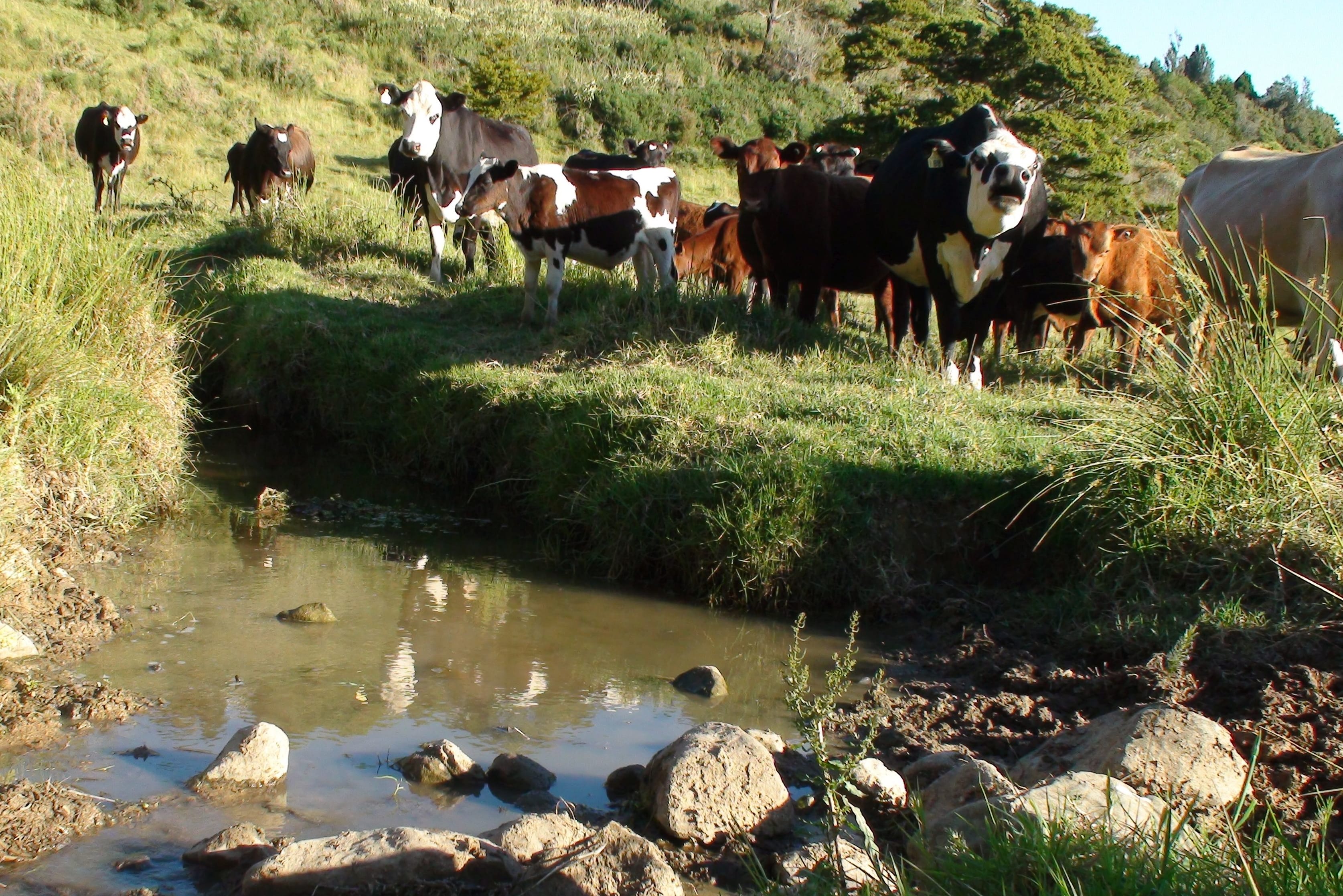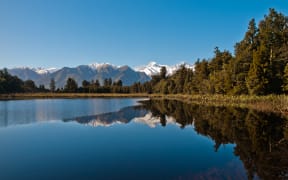New research reveals smaller streams account for the majority of contamination in waterways.

Cows near a waterway in Whangarei. Photo: RNZ / Lois Williams
Richard McDowell, the principal scientist for AgResearch Invermay's Environment Group, has just had the research published in the Journal of Environmental Quality.
Streams less than 1m wide and 30cm deep in flat catchments dominated by pasture accounted for, on average, 77 percent of contamination loads a key finding showed.
Current fencing policies suggest waterways of that size don't have to be fenced, while the report stated not requiring fencing may significantly delay or reduce the country's ability to improve water quality.
However, fencing is not always possible or financially viable in some areas, Dr McDowell said, and the report has provided up to 40 other mitigation techniques that included planting trees, developing wetlands, and different grazing techniques.
Smaller waterways had not flown under the radar, he said.
"It has not been overlooked or ignored. It is a practical consideration because there are so many of these small shallow streams.
"We do know where to target our strategies to prevent contaminant loss into the small shallow streams."
That is done by assessing landscapes and coming up with critical soils areas, which are areas on the farm that account for a majority of contaminant loss, but only come from small areas.
"Defining those critical source areas enables us to target our mitigation strategies much more. By doing that we increase the cost effectiveness of those mitigation strategies by about six or seven times over an untargeted approach."
Farmers are dealing with an increasingly complex farming operation and mitigation techniques need to be as simple as possible, he said.
The country certainly has challenges with water quality, but there is a lot of work being done, he said.
"I'm optimistic about our ability to implement strategies and with a bit of foresight, investment and a bit of common sense I think we can get there.
"It is just bringing people along on that journey in a time frame that they're acceptable with and this is the hard part. It's not an overnight fix, it's probably going to take five years to a generational timespan to fix this," he said.







